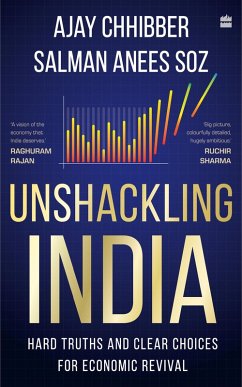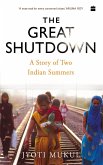As India enters its seventy-fifth year of independence, conventional policy is unlikely to combat the breadth of its economic challenges. Across a range of areas-human capital, technology, agriculture, finance, trade, public service delivery and more-new ideas must now be on the table. The COVID-19 pandemic has not only cost India many lives and livelihoods, it has also exposed major structural weaknesses in the economy.
A huge farm and jobs crisis, rising and massive inequalities, tepid investment growth, and chronic banking sector challenges have plagued the economy, exacerbated by the COVID-19 pandemic. It has also exposed the limitations of the Indian state, which tries to control too much-and ends up stifling the economy and the inherent energies of its young population. Climate change is no longer a distant threat, while disruptive technology has huge implications for India's demographic dividend. In addition, the dangerous lurch towards majoritarianism will cast its shadow on India's pursuit of prosperity for all.
Unshackling India examines the question: Can India use the next twenty-five years, when it will reach the hundredth year of independence, to restructure not only its economy but rejuvenate its democratic energy and unshackle its potential-to become a genuinely developed economy by 2047? The book argues that India can foster a prosperous and inclusive economy if it sets its mind to it, acknowledges the hard truths, and lays out the clear choices and new ideas India must adopt towards that end.
A huge farm and jobs crisis, rising and massive inequalities, tepid investment growth, and chronic banking sector challenges have plagued the economy, exacerbated by the COVID-19 pandemic. It has also exposed the limitations of the Indian state, which tries to control too much-and ends up stifling the economy and the inherent energies of its young population. Climate change is no longer a distant threat, while disruptive technology has huge implications for India's demographic dividend. In addition, the dangerous lurch towards majoritarianism will cast its shadow on India's pursuit of prosperity for all.
Unshackling India examines the question: Can India use the next twenty-five years, when it will reach the hundredth year of independence, to restructure not only its economy but rejuvenate its democratic energy and unshackle its potential-to become a genuinely developed economy by 2047? The book argues that India can foster a prosperous and inclusive economy if it sets its mind to it, acknowledges the hard truths, and lays out the clear choices and new ideas India must adopt towards that end.
Dieser Download kann aus rechtlichen Gründen nur mit Rechnungsadresse in A, D, L ausgeliefert werden.









